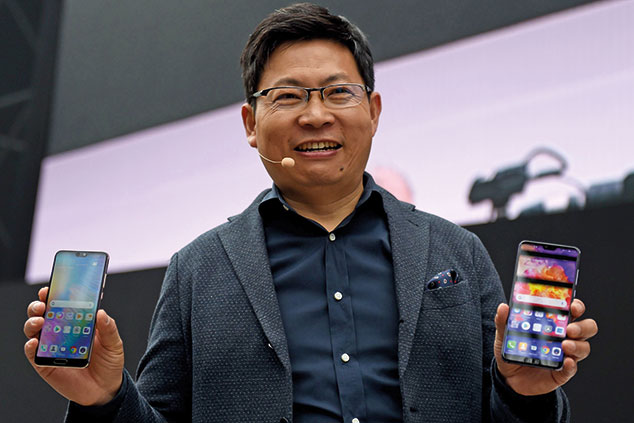
Led by the US, Western governments have become increasingly worried about the rise of Huawei. The maker of everything from handsets to network infrastructure, the Chinese conglomerate has turned itself into one of the global giants of the industry. As control of information systems become a key battleground in geostrategic conflicts, Huawei is probably not to be trusted. It has already been blocked from building the next generation of mobile networks in the US, and in many other countries too.
This week the conflict escalated with the decision by Google to restrict Huawei’s access to a range of its apps. Huawei will no longer have access to updates of the Android operating system and newer versions of its phones may not have apps such as Gmail, Google Maps, or YouTube. Other big US tech companies, such as Intel and Qualcomm, may follow suit. In effect, Huawei will be frozen out of the US’s technological ecosystem. Tech firms have become the infantry in Trump’s bitter trade and technological war with China.
The first shot in a new war
That will hurt Huawei. It is already the third-biggest handset supplier in Europe, with 17% of the market, and on some measures it is now the second biggest in the world, overtaking Apple and behind only Samsung. Losing access to the latest Google apps will be a significant blow. Will anyone really want a smartphone without YouTube and Google Maps, even if it does come with a great camera and snazzy headphones? It is open to question. One thing is certain: it will slow down Huawei’s advance.
But it will also hurt Google, for two reasons. First, Huawei is a big firm. It makes great phones at competitive prices and, while some people may buy a different model, others will still get a Huawei and just use a different mail or map service. At the margin, Google will have to sacrifice some market share.
More seriously still, Huawei has already said it is working on its own operating system. Whether that succeeds or not remains to be seen (although you’d hardly want to bet against it). Google will have created a powerful new competitor. Wars are never predictable, and the trade kind are no different from the military version in that respect. The break with Huawei may mark the beginning of the end of Google’s dominance of search and mobile apps.
It doesn’t stop there. If the White House is determined to weaponise USA Inc in its struggle against China’s rising economic power then a whole range of companies and industries will be caught up in the conflict. Intel and Qualcomm already look set to sever at least some ties with Huawei, and other Chinese tech companies might be next. Other tech firms may be forced into line. Facebook can probably forget about China and so can Netflix. Amazon already seems to be retreating from its modest operations in that country.
Beyond that, aerospace is an obvious point of conflict as the Chinese start to build up their own ability to make commercial aircraft (the 90-seat ARJ21 Chinese-built jet is already in service, with a bigger plane set to launch in 2021). Pharmaceuticals may well be next. We can add media and banking to the list, as well as agriculture and cars. In any, and perhaps all, of those industries access to the Chinese market and collaborations with Chinese companies may soon be restricted in the interests of US foreign policy.
Maybe Chinese power needs to be curbed and maybe it doesn’t. For shareholders, however, it can only be bad news. It will inevitably mean lower sales and weaker profits, and probably more competition as well. If a company doesn’t have free access to one of the largest markets in the world, and one of the fastest growing, then it is going to be a lot less successful than it otherwise would be. That isn’t yet reflected in the share prices of the major American corporations – but it soon will be. Expect their shares to fall.